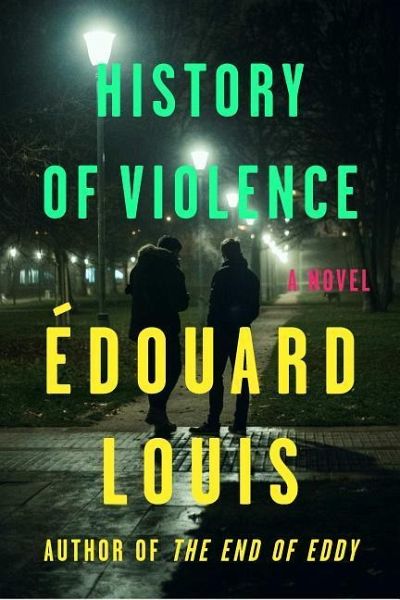I was pretty irritated by the sympathy for his assailant that Édouard Louis produced in History of Violence (published in French in 2016, in English in 2017). The labeling of it as “a nonfiction novel” irritated me, too, though I guess there it has some of the same overidentification with the assailant as in Capote’s In Cold Blood. Since Louis wrote the book, I knew that a murder was not committed. (Alas, he does not specify what the legal outcome was, that is whether the police were able to apprehend Reba. A start of strangulation, but no murder. There was a rape, although it followed multiple instances of consensual sex with the young Kabyle man he picked up on Christmas Eve. There is a lot of what strikes me as blaming the victim, even though the victim is the author (,too).

He wants to protect Reba from the police view of him as just another Arab thug, having elicited some family history before things went wrong (starting with the theft of L’s iPad and iPhone).
I guess what is fictional is imaging the reactions of his sister and, to a lesser extent, his mother to his picking up a Muslim and taking him home (that it was Christmas Eve does not seem to have increased the dismay of either woman). I’m not convinced that this is not also memoir of what they said to him and/or in his hearing. There is a lack of narrative drive, but if it is a novel, it is a French novel. (From his mentor, Didier Eribon, Louis received two signed first editions of Claude Simon novels that he was carrying when Reba struck up conversation with him as he walked homeward on Christmas Eve.)

(2014 DigitalPraxis photo of author)
He invokes a passage from Faulkner’s potboiler Sanctuary in which Temple Drake gos back, something he did not himself do, when finally he got out of his apartment.
The last page is a quotation from Imre Kertész that explained I don’t write to seek pleasure; on the contrary, it turned out that by writing I am seeking pain, the most acute possible, well-nigh intolerable pain, most likely because pain is truth…. Truth is what consumes you.” So, I’m not expecting Louis to write about happiness
At one point he recalls explaining to himself the motivation for the violence that seems plausible to me: “He hates himself for wanting men. He wants to redeem himself for what he did with you. He wants to make you pay for his desire. He wants to make himself believe that the two of you did all the things you did, not because of his desire, but as a strategy for what he’s doing now, that you didn’t make love, but that this has been part of a theft.” (p. 125)
Though I think Louis is overrated (at least in France) because he is young [born in October 1992], blond, and working-class, his memoir of escaping his working-class provincial background, The End of Eddy (2014), has more substance IMO.
© 12 August 2018, Stephen O. Murray

